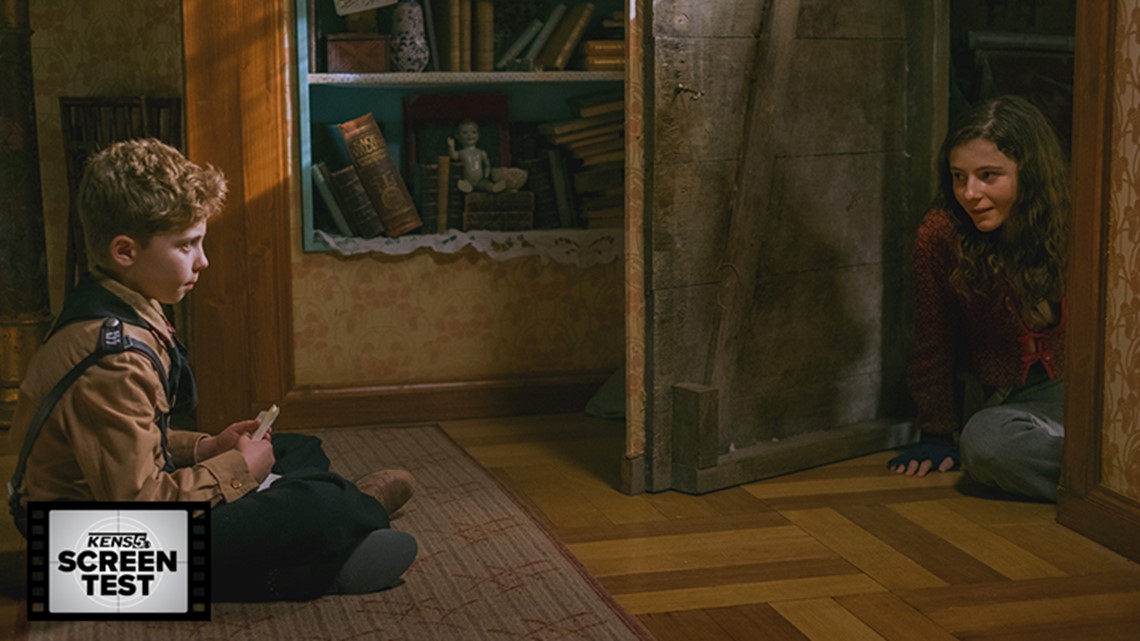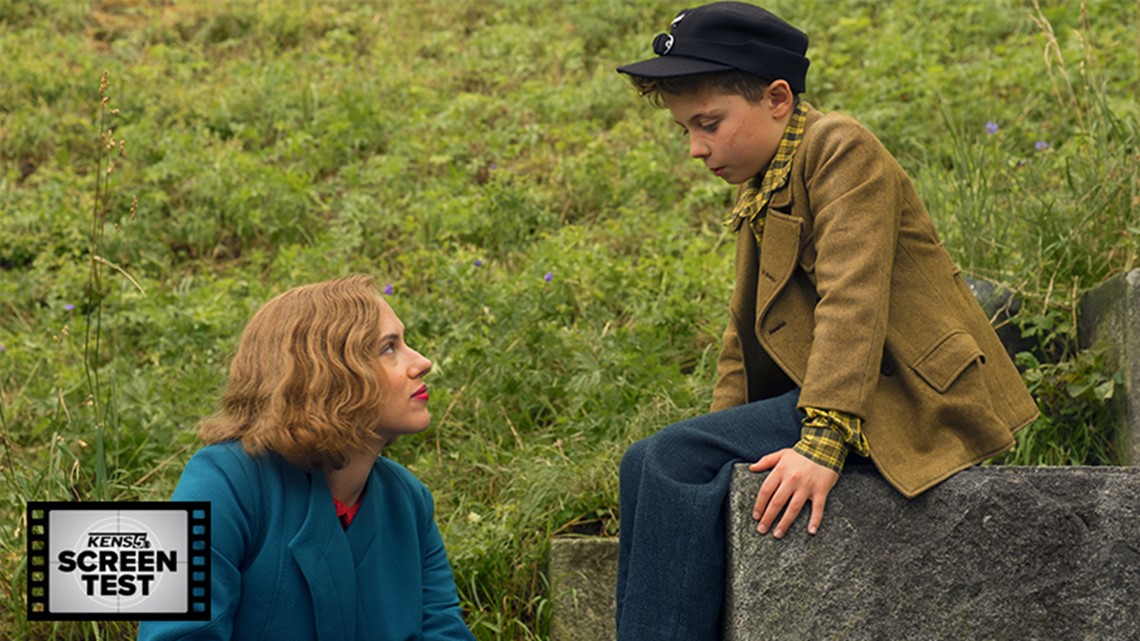In a recent episode of NPR’s “Fresh Air,” a former member of the Westboro Baptist Church – infamous for putting its hateful ideology on shameless display at the funerals of U.S. servicemembers – discusses liberating herself from the beliefs that had indoctrinated her into an isolated worldview of faux moral righteousness.
The way Megan Phelps-Roper puts it, emerging from the dangerous cocoon of the church was a “devastating” exercise in isolation in and of itself—isolation from everything she had known and from the family that had taught her. The cognitive dissonance was world-shattering, and what followed was the start of a lifelong journey to piece together a new perspective.
“How could we have possibly believed that we alone had had the one true answer, and to believe that everyone else was wrong?” she says. “There was just this special kind of shame and humiliation, and this reminder to me of the need for humility and how we see the world and other people.”
Taikia Waititi’s “Jojo Rabbit” knows all about the discomforts of changing your entire worldview. Large stretches of it are spent dwelling on the the solitude of being stranded in a moral No Man’s Land, though you’d be forgiven early on for thinking the director of “Hunt for the Wilderpeople,” “What We Do in the Shadows” and “Thor: Ragnarok” has no intention of broadening himself beyond the sanitized sentimentality of Hallmark Channel Christmas movies. The Kiwi auteur is a sucker for pathos here, and it’s best exemplified by the transformation of Roman Griffin Davis’s adorable Jojo, who has exactly the kind of face Pixar storytellers will search for when they begin making live-action movies.


The difference between Jojo’s situation – a story from Christine Leunens’s book “Caging Skies” as Waititi takes a break from “Thor” projects – and Megan Phelps-Roper’s is the difference between an oppressive chant and historical genocide: He is a 10-year-old swastika-wearing trainee in Hitler’s youth program, living in wartime Germany and marching with Christmas-morning enthusiasm into Nazi training camp with dozens of other pint-sized kiddos, whose gusto at receiving their daggers and learning to toss grenades would make the Boy Scouts of “Moonrise Kingdom” run for their mamas, even as Waititi mirrors Wes Anderson’s cheery tone.
Oh, and the director himself occasionally pops up as a slapstick, ostensibly harmless version of Adolf Hitler who exists only in Jojo’s mind. We can’t forget about that.
“None of this is weird,” Waititi says at one point in the movie. But there’s a wink in his voice—of course it is, he knows it is. The bizarre irony that fuels much of “Jojo Rabbit’s” first act – funny enough, if only for its this-shouldn’t-fit-together blend of darkness and aww shucks-ness – is as blatant as white supremacists marching down city streets. Whereas Anderson’s ultra-polished scout troop charmed in their exaggerated militaristic confidence, Waititi’s movie trivializes Nazi tendencies and attitudes, leading us to believe that’s his battle plan for ambushing them.
Because being on the offensive is the goal here for the director. A glance at the movie’s tagline – “An anti-hate satire” – confirms it. Even without Waititi’s mission statement, movies are as much products of when they are created as who created them. The filmmaker’s brand of irreverent comedy can be checked off; it’s in full effect as the tykes excitedly participate in book-burning and an accented Rebel Wilson boasts of producing 18 babies for the Nazi cause.
But it’d be irresponsible to ignore the reality “Jojo Rabbit” is releasing into: This week marked one year since a Pittsburgh synagogue shooting killed 11 people in the deadliest anti-Semitic attack in U.S. history. White supremacist violence is rising. And swastikas have appeared in Arizona, Ohio and Indiana—all in recent weeks.
The first impression of “Jojo Rabbit” is that it hops into our world with a blasé attitude to our world. As we watch images of Jojo as a Nazi-in-training punching up to what amounts to bullies in the movie’s early scenes, it seems like Waititi is ignoring the responsibility of confronting our reality with his squeaky-clean one—and is instead asking us to contextualize his movie’s oddball warm embrace with the horrors we know Nazism to be capable of all, while refusing to step across the line for himself.
30 or so minutes in, I felt uneasily like Waititi – often a daring storyteller – had restrained himself when it mattered most for him to be provocative. Cheeky parody wasn’t going to cut it when it comes to satirizing Nazis. Not in the 1939, not in 2019.
Then “Jojo Rabbit” takes a turn. Or rather, it reveals its true self as something much more considered and complex. After blowing off half his face when an attempt to show his courage with a grenade goes south, Jojo spends much of his time at home, recovering. We observed his relationship with his mother (Scarlett Johansson, in a layered, wonderful performance), mysteriously teen-like in how she sneaks out of and into the home. He occasionally does entry-level work for the Third Reich, posting propaganda and the like.
And…he discovers a Jew, Elsa, hiding in the walls of his house, scrambling away from her, screaming and reacting like he’s been conditioned to—as if she was a monster. Waititi goes along with it, filming Elsa emerging from her hiding place with spidery fingers and malicious intent.
The director’s intentions become clear. We aren’t being asked to re-contextualize the movie on our terms to make it the kind of cinematic weapon Waititi intends for it to be against real-world hate. He’s doing something more intimate, constraining us to Jojo’s point of view—the warped lens of a young Nazi brainwashed, with no intention of breaking free from his adoration of evil. Sympathy isn’t the goal—an examination of an infantile mind wrestling with itself is.
Elsa and Jojo’s relationship becomes the core of the movie – its heart and its soul, too – and the bars of the moral cage that Jojo has caged himself into begins to be visible, despite his wanting to ignore them. Elsa, an immaculate turn by the young actress Thomasin McKenzie, is clearly not one to do him harm—she playfully toys with his desire to learn about her (“We get them when we turn 21,” she says when Jojo asks where her horns are) while nailing down every wrong thing he has assumed about her. In these scenes especially, Waititi’s screenplay is able to balance matter-of-factness with dark humor, striking at the same brand of blind tribalism that equates scrolling through Twitter feeds with entering an Upside Down version of 2019.
In one of the movie’s most telling moments, Jojo asks Elsa to draw where Jews live. She hands him a portrait of himself. “This is just a picture of my head,” Jojo says in dismay. “Yeah,” Elsa replies, “that’s where we live.”
You can see the struggle Jojo is caught in—and perhaps can recognize the fear that manifests in Davis’s increasingly unsure face that everything he’s been conditioned to know are lies. Does the movie fully reckon with Jojo submitting himself to a hateful ideology? No. But it suggests early on, in a key scene where he’s ordered to act on his urge to commit heinous acts, that Jojo may never have completely signed his life over to Hitler’s cause anyway. Everyone will take Waititi’s intents as they will.
“Jojo Rabbit” may ultimately not go to the lengths of crucifying Nazism that its premise would have us think it does, but it also doesn’t completely let Jojo off the hook. The movie ends up being surprisingly more universal an artifact than it lets on—specifically, it becomes an indictment of the blind rage that churns within a poisonous hive mind mentality, not unlike this year’s documentary “Hail Satan?” It’s also enough to confirm “Jojo Rabbit” isn’t a movie for kids, despite its sunny façade manifested largely through exquisite production design and costume work. The bright environment are a grim contrast to everything happening within it—suffice to say, the wallpaper begins to peel by movie’s end.


Perhaps ironically, what is most inconsistent about “Jojo Rabbit” is the comedy Waititi leans into with his imaginary Hitler, who functions much better as a representation of Jojo’s mind still worshipping at the real Hitler’s feet with a tangible vileness that only fully comes into its own in the movie’s final moments. Indeed, large swaths of the movie’s comedy feels indulgent, the director often switching tones where it suits him for laughs from scene to scene.
Instead, his efforts excel in its manifestation of sadness—a sadness he imbues not cheaply, but against the backdrop of Jojo’s increasing loneliness. The isolation isn’t only in his head; the plot goes to heart-wrenching places that I won’t spoil here. What I will say is that Waititi eventually does make a leap that is, if not worthy of its explicit subject matter, then knowledgeable about the conditions that must be in place for it to thrive in—conditions plainly stated in our headlines and online extremist rants.
The tension we associate with those conditions aren’t disposed of by Waititi, whose depiction of Nazi evil evolves from the cartoonish – Sam Rockwell’s drunken, inept Capt. Klenzendorf – to the exponentially more threatening in the Gestapo agent played by Stephan Merchant who shows up about two-thirds of the way through. It’s a smart trick on the writer-director’s part to introduce a more consummate evil, paralleling Jojo’s slowly-evolving worldview.
And even as that evolution eventually results in liberation, Waititi doesn’t hesitate from glossing over the child’s epiphany with the stuff of rainbows and roses. “Jojo Rabbit” is a movie constantly responding to itself and its title character, culminating in something of undeniable emotional magnitude and complexity—a treatise of compassion, kindness and finding authenticity in the tidal wave of falsity dominating the 21st century.
"Jojo Rabbit" is rated PG-13 for mature thematic content, some disturbing images, violence and language.
Starring: Roman Griffin Davis, Thomasin McKenzie, Scarlett Johansson, Taika Waititi
Directed by Taika Waititi
2019



